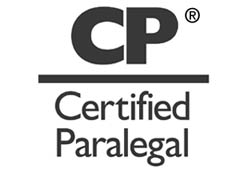If you work in personal injury or worker’s compensation you may have had the unfortunate experience of dealing with a litigation loan shark. Litigation lending is becoming more and more common with the difficult economy. All legal professionals should know what really happens when a plaintiff borrows against his or her future settlement. Please note: I am a freelance paralegal in Georgia so all of my research is based on Georgia laws and cases.
 Let’s start with a typical scenario: A person (now a plaintiff) is injured, home from work and unable to make ends meet. She spends a lot of time watching TV where she is constantly seeing commercials that promise an advance on lawsuit settlements. As her unpaid bills accumulate, she listens to those ads more closely. She feels certain she will have a good settlement, but it will not be soon enough. She needs money now. The ads say if you don’t win your case you don’t have to repay the money – that sounds like a good deal. She knows there will be interest to pay, but there is always interest. No one else will loan her money. Her pending lawsuit seems to be the only asset she can leverage. She dials the number on the screen, within days she signs some papers and receives a check for some much needed financial relief (at least for now).
Let’s start with a typical scenario: A person (now a plaintiff) is injured, home from work and unable to make ends meet. She spends a lot of time watching TV where she is constantly seeing commercials that promise an advance on lawsuit settlements. As her unpaid bills accumulate, she listens to those ads more closely. She feels certain she will have a good settlement, but it will not be soon enough. She needs money now. The ads say if you don’t win your case you don’t have to repay the money – that sounds like a good deal. She knows there will be interest to pay, but there is always interest. No one else will loan her money. Her pending lawsuit seems to be the only asset she can leverage. She dials the number on the screen, within days she signs some papers and receives a check for some much needed financial relief (at least for now).
In March 2012, The U.S. Chamber Institute for Legal Reform issued a report called, “101 Ways To Improve State Legal Systems.” Out of the 101 issues addressed, lawsuit lending was number three. Lawsuit lenders are not subject to the same regulations as other lenders because it is not considered a “loan” when the plaintiffs are not obligated to repay the money if they lose their case. Georgia usury laws, which cap interest at 60% for most loans, do not apply. Companies such as Oasis Legal Finance and Law Cash refer to their lending as investments, advances, financing or funding and claim they are not subject to existing lending laws. These lenders typically charge interest rates in the neighborhood of 15% per month, claiming that investing in lawsuits is a high risk. But are they really high risk?
According to The Atlanta Journal and Constitution, “From 2007 through 2010, 15,530 Georgia residents applied for Oasis funding and the company accepted 5,326, according to company data. To select clients, Oasis considers the strength of a case, whether the plaintiff has insurance, the severity of the injury, the description of the accident and whether the plaintiff has an attorney.” A 2009 presentation to the Society of Actuaries by the London-based investment firm Peachtree Asset Management showed that losses are “extremely low” because the companies use defense-oriented lawyers to review cases, they assess each lawsuit’s potential worth conservatively and they lend no more than 20 percent of a case’s estimated value.
Let’s take a look at two real, live Georgia residents who used lawsuit lending. The first is Larry Long who suffered a debilitating stroke while using the pain medication Vioxx. Mr. Long was facing eviction from his Georgia home while waiting for a settlement from a class-action lawsuit against the drug company. He borrowed $9,150 from Oasis Legal Finance. By the time he received an initial settlement payment of $27,000, 18 months later, he owed Oasis $23,588, almost the entire sum.
Next is Alvin Waters who was hit by a Volvo while crossing an intersection and was unable to work for over a year due to his injuries. He drained his savings to pay living expenses during the first six months of his pending lawsuit against the driver. He borrowed $5,000 from Oasis. Only four months later, he settled his case and owed Oasis $7,500 – a 50% return for the lender. Had his case taken a year to settle, he would have owed them $11,250 – a 125% return. Waters regrets his decision but says, “At the time, I was in a desperate spot. These people catch you at your most vulnerable moment.”
Lawsuit lending is not only a problem for consumers, but also for plaintiff’s attorneys, defense attorneys, insurance carriers and the general public. By bringing in a third party lender, the attorney-client relationship is seriously weakened. A company with a vested interest in the outcome of the lawsuit will seek to influence strategy, access confidential information, and pressure the plaintiff into holding out for a bigger settlement. While attorneys have an ethical obligation to represent clients zealously and maintain their confidences, third party lenders are under no such obligation. These third-parties will call an attorney’s legal expertise into question and weaken the trust clients have placed in their attorneys. This creates a lose-lose situation for both attorney and client.
Defense attorneys and insurance companies have legitimate concerns about litigation funding as well. In a report called, “Third-Party Litigation Funding: Tipping the Scales of Justice for Profit,” the National Association of Mutual Insurance Companies states, “As third-party funding increases the volume of litigation, the litigation defense costs that insurers incur will increase as well. This, in turn, will cause premiums to rise.”
As this industry has grown to lending plaintiffs more than $100 million a year, it is time for states to take its regulation seriously. Currently, only a handful of states have consumer protection laws specifically regarding litigation finance, but the issue is being debated by state bar associations and legislatures across the county. There are pending bills regarding litigation funding in several states, and even more pending law suits in states where some type of regulations have been enacted.
At the recent 12th Annual Legal Reform Summit, Georgia’s own former attorney general, The Honorable Thurbert E. Baker called lawsuit lending a “huge problem.” He went on to say, “We have to make sure lawyers understand their professional responsibilities to the client.”
I agree and I believe we all need to keep our eyes wide open on this one.
 Misty L. Sheffield is a freelance paralegal helping solos and small law firms in civil litigation. She has been assisting attorneys for over 12 years.
Misty L. Sheffield is a freelance paralegal helping solos and small law firms in civil litigation. She has been assisting attorneys for over 12 years. 



Thank you for reporting your findings on Oasis Legal Funding. I’m surprised more legal professionals don’t have the decency to come forward and state the truth about Oasis lending rates and loan terms to consumers. In addition to Atlanta, Oasis lending officers in South Florida are in full-force. Maybe one day soon, FL state reps will begin to take note and regulate.
I am from Texas, but you helped me make a good decision. I kind of felt that Oasis was not telling the whole truth on their television commercials.
Thank you for opening my eyes even wider. My Husband told me not believe everything I see on television. But, I was going to talk to my attorney first about it first anyways.
But, I decided to check and see what negativity there was about it first
So, once again you helped out a lot.